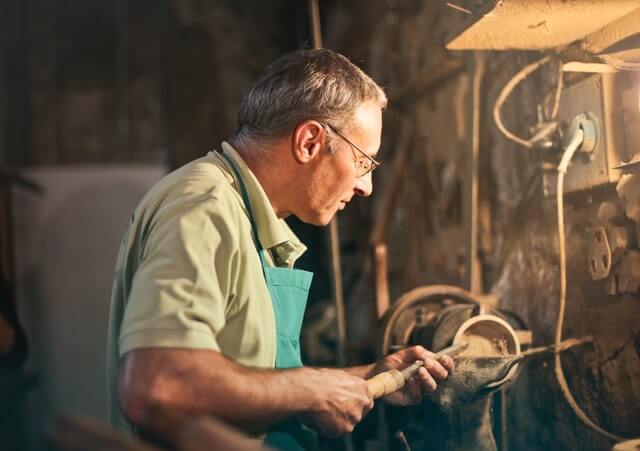Whether it’s knives or any other metal item, blacksmiths quench the metal to add hardness. The best substance for quenching is oil. It is a popular quenchant because it tends to transfer heat slowly.
This makes it a better choice for quenching than water. Moreover, by using oil, blacksmiths ensure lower distortion and cracking of the metal thanks to evened out cooling.
Not every substance can be quenched in oil, and it can even be detrimental in some cases. Knives are satisfied to give them better construction, and the process is usually the same. Most knives have the right properties and are well suited for quenching in oil.
If you are an amateur blacksmith or just curious to know why knives are quenched in oil, read on.
Contents
Why Are Knives Quenched in Oil?
The process of quenching in oil is as old as the blacksmith techniques of the 19th century. There are newer procedures and advanced techniques that have come into being since then.
Not only can you quench in oil, but also benefit from blending different quenching substances. This combines the multiple advantageous quenching properties of several types of oils.
Another common technique is to add emulsifiers to quenching oil. This will make it easier to clean the knife after the quenching is done. Quenching oils also come with antioxidant elements that help to increase their longevity. These also add to their resistance to high temperatures.
The 2 main reasons for quenching are the hardening of the knife material and eliminating vulnerable areas. First, regulation of the heat as you quench the blade will add to the toughness. Secondly, it will reduce the chances of creating unwanted soft spots.
This is done by wetting the steel much faster. Ultimately, the knife blade will become less susceptible to cracking or distortion.
Why Are Knives Quenched in Oil and Not Water?
The boiling point of water and other liquids is much lower than that of oil. Since oil does not boil as fast, the cooling process is much more regulated as well. Thus, oil is perfect for quenching knives because it lowers the possibility of cracking.
The temperature-related properties of oil operate on 2 factors. The cooling rate reduces as the temperature of the oil increases due to the vapors formed. At the same time, the heat conduction improves as the oil becomes more liquidated by heating.
Other Quenching Factors to Consider
Quenching is not a simple process when it comes to knife blades or any other item. That is why you should keep the following important factors in mind:
Important Quenching Factors
- Quenchant or the medium used for quenching
- Temperature of the quenchant
- Size of the container
- Type of steel of the knife
- Shape of the blade
Matching the right steel with the right medium of quenching is key. If you mismatch these two factors, you could end up compromising the quality of the blade.
Also, you need to consider how hot you want to make the quenchant and keep the cooling factors in mind.
Quenching knife blades can be a little challenging due to their shape. They are broad at one end and narrow down at the tip. This means that you need to be extra cautious while cooling to avoid distortion.
Conclusion
If you have ever wondered why are knives quenched in oil, these are all the important reasons. You can explore more complex quenching techniques to custom build the perfect knife blade.
